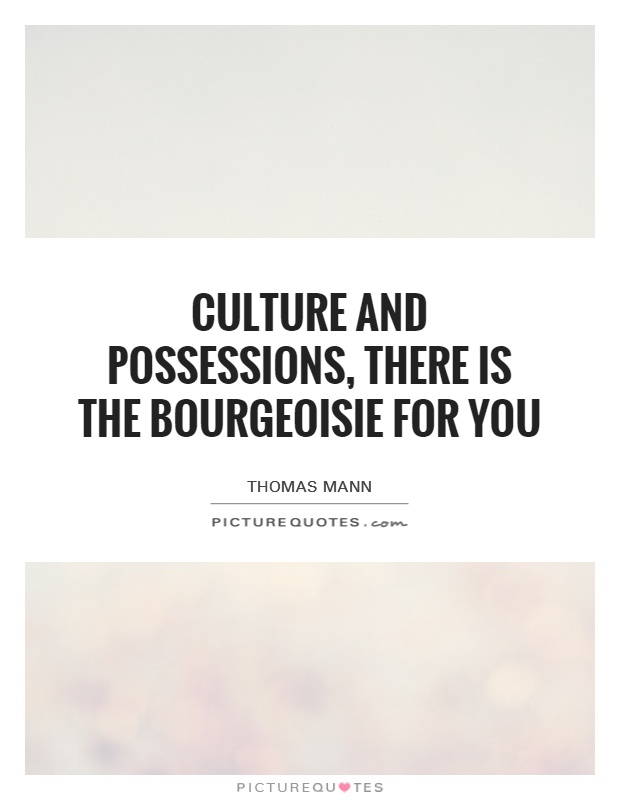Culture and possessions, there is the bourgeoisie for you

Culture and possessions, there is the bourgeoisie for you
In Thomas Mann's works, particularly in his novel "Buddenbrooks," the theme of culture and possessions is a central focus. Mann explores the idea of the bourgeoisie and how their culture is intertwined with their possessions. The bourgeoisie refers to the middle class, typically characterized by their material wealth and social status. In Mann's novel, the Buddenbrook family represents this bourgeois culture, and their possessions play a significant role in shaping their identity and social standing.The Buddenbrooks are a wealthy merchant family in the fictional town of Lübeck, Germany. Throughout the novel, Mann delves into the family's obsession with material possessions and how these possessions define their social status. The family's wealth is built on their successful business ventures, and they take great pride in their luxurious homes, expensive clothing, and extravagant parties. For the Buddenbrooks, their possessions are not just objects but symbols of their success and status in society.
Mann uses the character of Thomas Buddenbrook, the patriarch of the family, to illustrate the connection between culture and possessions. Thomas is a shrewd businessman who values material wealth above all else. He is constantly striving to maintain the family's lavish lifestyle and is willing to make sacrifices to protect their possessions. Thomas's obsession with possessions ultimately leads to his downfall, as he becomes consumed by his desire for wealth and status.
Mann also explores the impact of culture on the Buddenbrook family's possessions. The family's wealth and social standing are closely tied to their adherence to cultural norms and traditions. They are expected to uphold certain standards of behavior and maintain a certain level of sophistication in their possessions. This cultural pressure adds an extra layer of complexity to the family's relationship with their possessions, as they must constantly navigate between their desire for material wealth and their need to conform to societal expectations.
Overall, Mann's exploration of culture and possessions in "Buddenbrooks" sheds light on the complexities of bourgeois society and the ways in which material wealth can shape one's identity and social standing. The novel serves as a cautionary tale about the dangers of placing too much value on possessions and the importance of maintaining a balance between material wealth and cultural values.












 Friendship Quotes
Friendship Quotes Love Quotes
Love Quotes Life Quotes
Life Quotes Funny Quotes
Funny Quotes Motivational Quotes
Motivational Quotes Inspirational Quotes
Inspirational Quotes